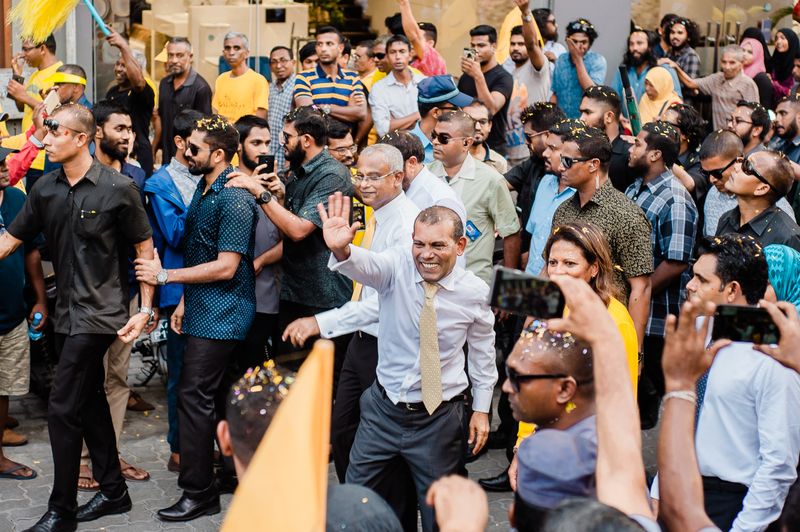- Analysis: Questions Ahead of the First GOP Primary Debate of the 2024 Election Cycle
- Introduction
- Question 1: Which gets more attention – the debate or Trump’s counterprogramming?
- Question 2: How much will the candidates focus on Trump?
- Question 3: What will the candidates focus on?
- Question 4: What is the importance of the debate’s location?
- Question 5: Can any candidate emerge from Trump’s shadow?
- You might want to read !
Analysis: Questions Ahead of the First GOP Primary Debate of the 2024 Election Cycle
Introduction
As the Republican Party prepares for its first presidential primary debate for the 2024 election cycle, there are several key questions surrounding the event. The absence of former President Donald Trump, the dominance of Trump’s shadow, and the potential focus of the candidates are all factors that will shape the debate. Additionally, the location of the debate in Wisconsin and the effort to emerge from Trump’s shadow are important considerations. Let’s dive into these questions and explore their implications.
Question 1: Which gets more attention – the debate or Trump’s counterprogramming?
With Trump opting for counterprogramming – an interview with Tucker Carlson on Fox News during the debate – the first question is which event will garner more attention. Trump’s decision not to participate in the debate demonstrates his belief that the current Republican Party is a party of one. This move, which is reminiscent of Trump’s past decision to skip a Fox debate in 2016, allows him to maintain his outsider narrative and generate chaos for his benefit. Ultimately, history may repeat itself, with Trump’s counterprogramming once again stealing the spotlight.
Question 2: How much will the candidates focus on Trump?
With Trump absent from the debate stage, it is a key consideration as to how much attention the candidates will give to him. While some vocal critics like Chris Christie and Asa Hutchinson may take the opportunity to go after Trump, others may try to avoid mentioning him altogether. This first chance to introduce themselves to a wider GOP audience is crucial for many candidates, and they will want to focus on making their own case rather than ceding the spotlight to Trump. Furthermore, recent polls indicate that the GOP base wants candidates to focus on themselves rather than attacking the former president.
Question 3: What will the candidates focus on?
In this debate, the candidates’ focus will be crucial in determining their appeal to voters. While issues like the economy and inflation continue to poll as top concerns for potential GOP voters, the candidates will need to go beyond criticisms of President Biden and present serious proposals. Splits may also emerge on certain issues, such as Ukraine. Culture-war issues, such as crime, immigration, and gender identity, are likely to be addressed, as they serve to unify the GOP base. However, one social issue that the candidates have yet to find a unified message on is abortion, which has been a unifying force for Democrats.
Question 4: What is the importance of the debate’s location?
Although the debate is being held in Wisconsin, which is not an early nominating state, its significance lies in the state’s recent electoral history. Republicans need to win states like Wisconsin if they want to reverse their trajectory of losing the popular vote in presidential elections. Therefore, the messages delivered by the candidates in this swing state will be crucial in appealing to a general election audience. However, it is important to note that the primary audience for these candidates will still be GOP primary voters.
Question 5: Can any candidate emerge from Trump’s shadow?
The ultimate challenge for the candidates in this debate is whether anyone can successfully emerge from Donald Trump’s shadow. Since his emergence on the political scene, Trump has held a hypnotic-like hold on the Republican Party, making it difficult for any candidate to break free and establish their own presence. This debate presents an opportunity for candidates like Tim Scott, Nikki Haley, Vivek Ramaswamy, and Ron DeSantis to assert themselves and gain momentum. However, it remains to be seen if any candidate can truly escape Trump’s overwhelming influence.
Conclusion
The first GOP primary debate of the 2024 election cycle carries several significant questions that will shape the narrative of the Republican Party. The absence of Donald Trump, the focus of the candidates, the importance of the debate’s location, and the challenge of emerging from Trump’s shadow all contribute to the complex dynamics of the debate. As the candidates take the stage, they must carefully navigate these questions and seize the opportunity to make their case to Republican primary voters.
This report was written by , a current affairs commentator for the New York Times.

<< photo by Asad Photo Maldives >>
The image is for illustrative purposes only and does not depict the actual situation.




